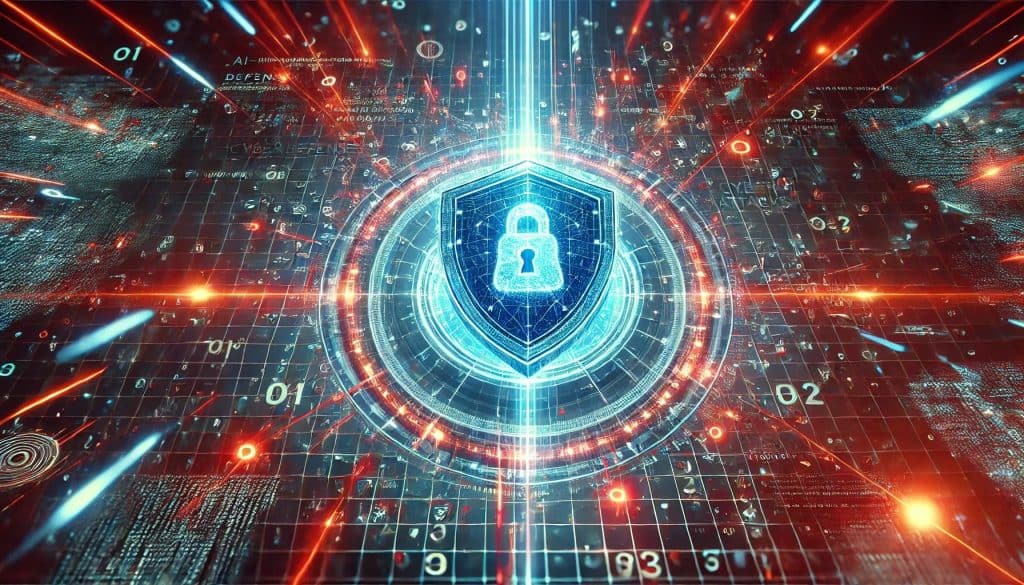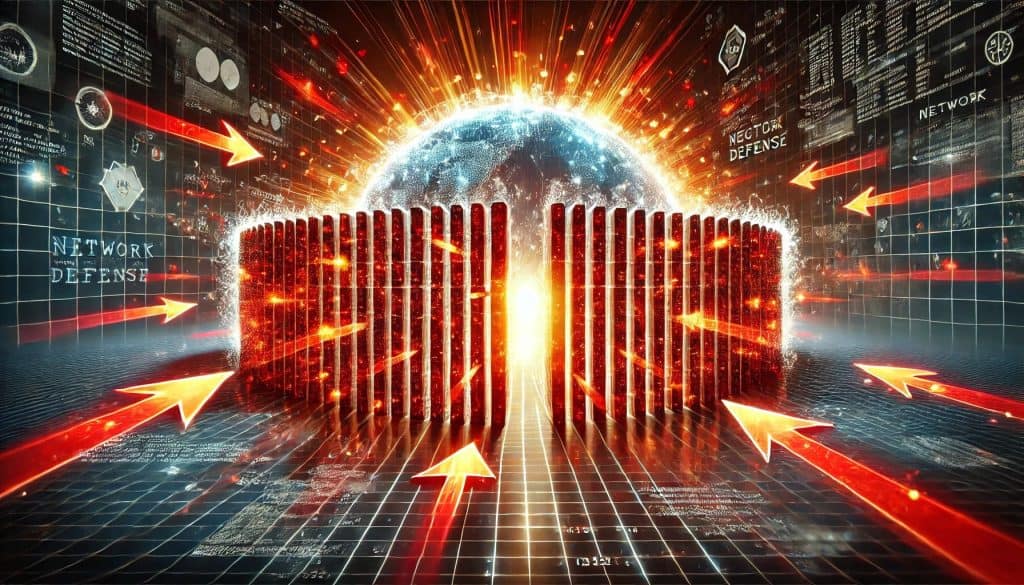Cybersecurity In today’s interconnected world, the importance of cybersecurity cannot be overstated. From privacy to national security, it is the frontline defense against countless digital threats. But what exactly is it, and why is it so essential? This article explores its definition, elements, and importance, with the goal of providing a comprehensive understanding of this important field.
What is cybersecurity?

At its core, it’s about protecting systems, networks, and programs from digital attacks. These cyberattacks typically aim to access, alter, or destroy sensitive information, extort money from users, or disrupt normal business processes. Implementing these measures effectively is especially challenging today because there are more devices than people and attackers are becoming more innovative.
Cybersecurity background
Its concept dates back to the early days of the Internet, when securing individual computer systems was the primary concern. Over time, as technology evolved and the internet became ubiquitous, its scope expanded. Today, it encompasses everything from hardware and software security to the protection of personal data to the integrity of digital transactions.
Evolution
The evolution of cybersecurity can be traced through a few key phases
| Steps | Description |
|---|---|
| In the early days | Focuses on individual computer and simple network security. |
| Internet boom | The growth of the internet has increased concerns about network security and data breaches. |
| Modern | Advanced threats such as ransomware, phishing, and state-sponsored attacks have emerged. |
| Future trends | Emphasize artificial intelligence, machine learning, and quantum computing to enhance security. |
Types of cybersecurity
They can be categorized into several types that cover different aspects of digital protection:
| Type | Description |
|---|---|
| Network security | Protect the integrity and usability of your network and data. |
| Information security | Protect sensitive information from unauthorized access and alteration. |
| Endpoint security | It focuses on securing individual devices, such as computers and smartphones. |
| Application security | Secure software applications from threats during development and deployment. |
| Cloud security | Protect data and applications hosted in cloud environments. |
| Operational security | Secure and manage processes and decisions for handling and protecting data assets. |
The role of cybersecurity?

It performs several important functions
- Protect sensitive data: Protect personal, financial, and organizational data from unauthorized access and breaches.
- Cyber threat mitigation: Identify and neutralize potential threats, including malware, phishing, ransomware, and more.
- Ensure business continuity: Avoid business disruption by protecting against cyberattacks that can cause system outages.
Aspects of cybersecurity
To ensure comprehensive protection, there are many aspects of this that need to be considered. These aspects include
- Technical security: Includes implementing technologies such as encryption, firewalls, and intrusion detection systems.
- Human factors: Emphasizes the importance of training and awareness to prevent human error that can lead to security breaches.
- Policy and governance: Establish rules and procedures to ensure consistent and effective practices.
How does cybersecurity work?
It works through a combination of tools, techniques, and best practices; it includes the following elements
- Firewall: Acts as a barrier between trusted and untrusted networks.
- Encryption: Convert data into a coded format to prevent unauthorized access.
- Hashing: Converting data into a fixed-size string to ensure integrity.
- Intrusion detection system (IDS): Monitors your network for suspicious activity.
- Security information and event management (SIEM): Analyze security alerts in real time.
Pros and cons
Implementing these measures provides significant benefits, including protecting sensitive data and preventing unauthorized access. However, it also presents challenges, such as the cost and complexity involved in maintaining a robust security system.
| Benefits of cybersecurity | Cybersecurity challenges |
|---|---|
| Protect your sensitive data | Can be expensive to implement and maintain |
| Prevent unauthorized access | Requires constant monitoring and updates |
| Strengthen trust in digital systems | Can lead to poor system performance |
| Mitigate the risk of cyberattacks | Complexity of managing multiple security tools |
Leading the way in cybersecurity

Many companies specialize in providing this solution, offering unique products and services designed to protect against a variety of digital threats. Some of the most prominent companies in this space include
Symantec
Symantec is known for its comprehensive security software that provides protection against malware, ransomware, and other cyber threats. Their solutions are widely used by individuals and businesses alike to protect sensitive information and maintain secure systems.
Palo Alto Networks
Palo Alto Networks is a leading provider of advanced firewalls and cloud-based security solutions. Our innovative approach to network security helps organizations protect their digital assets and gain a robust defense mechanism against a wide range of cyber threats.
McAfee
McAfee offers a range of products tailored for both consumers and businesses. Their solutions include antivirus software, endpoint security, and data protection services designed to effectively detect and neutralize cyber threats.
Cisco
Cisco is known for its wide range of network security products and services. The products they offer include firewalls, intrusion detection systems, and secure network infrastructure solutions that help organizations protect their digital environments.
Applications of cybersecurity
We have numerous applications across a variety of sectors, each requiring specific measures to protect sensitive data and ensure the integrity of our digital operations. Some examples include
Healthcare
In healthcare, protecting patient records and medical data is critical. With the increasing digitization of health information, securing electronic health records (EHRs) and preventing data breaches is paramount to maintaining patient privacy and compliance.
Funds
The financial industry relies heavily on them to protect financial transactions and personal banking information. These measures, such as encryption and secure authentication protocols, help protect against fraud, identity theft, and other financial crimes.
E-commerce
For e-commerce businesses, it’s essential to ensure the safety of online purchases and customer data. These measures, such as secure payment gateways, firewalls, and data encryption, help to protect sensitive information from cybercriminals and ensure a safe shopping experience for your customers.
Government
Government agencies must protect national security information and infrastructure from cyber threats. This includes securing classified data, protecting critical infrastructure, and preventing cyber espionage and attacks on government systems.
Training
Educational institutions also benefit from robust measures to safeguard student and faculty data, secure online learning platforms, and prevent cyberbullying and other digital threats. Implementing security protocols ensures a safe and productive learning environment.
To get a better understanding of cybersecurity, watch this informative video that discusses the key elements and importance of
Conclusion
In conclusion, cybersecurity is an essential discipline to protect our increasingly digitalized world. As cyber threats continue to evolve in complexity and frequency, so must our approach to security. Cybersecurity encompasses a wide range of practices, tools, and concepts designed to protect sensitive information, maintain the integrity of networks, and ensure the secure operation of systems across a variety of sectors.
FAQ
Is cybersecurity one word or two words?
Cybersecurity is typically written as a single word. This is the standard form used by most industry experts and authoritative sources, including major publications and government agencies.
What does cyber mean?
“Cyber” refers to anything related to computers, information technology, and virtual reality. In the context of cybersecurity, it refers to the protection of digital information and systems from cyber threats.
How does encryption improve cybersecurity?
Encryption protects data from unauthorized access by converting it into a coded format so that only those with the encryption key can access it.
See also
- Techpedia. Cybersecurity.
- TechTarget. Cybersecurity.
- Investopedia. Cybersecurity.
